UEFA 2020 Euro Championship – Day 15

A rest day and a chance to reflect on the group stages. As usual my ability to predict results and outcomes remains as awful as usual – good job I don’t bet! My prediction that England wouldn’t make it out of the group never looked likely after an opening win over Croatia. Germany up next for the Three Lions next and fingers crossed it’s a positive performance with of course a win. Gareth Southgate has insisted that the cautious approach was to ensure progress into the last sixteen, will he now release the handbrake? Is the trouble that once you get into a style of playing is it difficult or even possible to change that mentality?
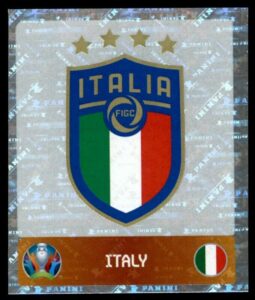 Who has impressed? Standout for me have been Italy – positive, fluid and solid at the back. They currently are my favourites. But the trouble with knockout football is that a big defensive display from the opposition in ninety minutes and extra-time and then anything can happen in the penalty shoot-out. Spain showed what they can do in their final game, and you can never write off a side that has Ronaldo in it, although Portugal have a tough tie up against Belgium. World Champions France weren’t at their fluid best, but in a difficult group emerged top and will more than fancy their chances against Switzerland.
Who has impressed? Standout for me have been Italy – positive, fluid and solid at the back. They currently are my favourites. But the trouble with knockout football is that a big defensive display from the opposition in ninety minutes and extra-time and then anything can happen in the penalty shoot-out. Spain showed what they can do in their final game, and you can never write off a side that has Ronaldo in it, although Portugal have a tough tie up against Belgium. World Champions France weren’t at their fluid best, but in a difficult group emerged top and will more than fancy their chances against Switzerland.
Credit must also go to Wales and Denmark who meet in the opening game of the Round of 16, with the Welsh having to deal with the travel to Baku, then to Rome and back, and doing enough with a cracking win over Turkey to get through. Whatever happens in the rest of this competition, the awful on-pitch collapse of Christian Eriksen will always be the abiding memory of Euro2020. The Danes looked like exiting as they played their final group game without a point to their name, but a stunning 4-1 win over Russia propelled them into the knockout phase. It could be a very interesting encounter.
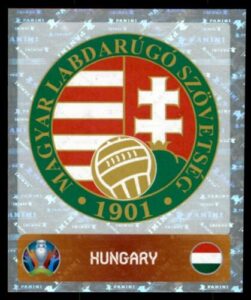 Of those leaving the tournament, the exit of Turkey and Poland must be considered shocks, whilst it was always going to be difficult for debutants Finland and North Macedonia. Scotland will be disappointed that they slipped out of the competition with a whimper rather than a bang, scoring just once and collecting just a solitary point. And Hungary were just six minutes from going through at the expense of Germany.
Of those leaving the tournament, the exit of Turkey and Poland must be considered shocks, whilst it was always going to be difficult for debutants Finland and North Macedonia. Scotland will be disappointed that they slipped out of the competition with a whimper rather than a bang, scoring just once and collecting just a solitary point. And Hungary were just six minutes from going through at the expense of Germany.
Other observations. Is it me or are the referees constantly in the way? There have been many occasions when they just seem to be too near the ball in play. I love the game, but I have been genuinely grateful for the two day break before the Round of 16. As I said in my Prologue, the tournament is too big and to have 36 games just to eliminate 8 teams, is just crazy. Given that, so far I’ve not been totally grabbed by the tournament and perhaps the competition will explode into life with the last sixteen.
 Group E: Slovakia (0) 0 – 5 (2) Spain
Group E: Slovakia (0) 0 – 5 (2) Spain Group E: Sweden (1) 3 – 2 (0) Poland
Group E: Sweden (1) 3 – 2 (0) Poland Group F: Germany (0) 2 – 2 (1) Hungary
Group F: Germany (0) 2 – 2 (1) Hungary Group F: France (1) 2 – 2 (1) Portugal
Group F: France (1) 2 – 2 (1) Portugal Group D: England (1) 1 – 0 (0) Czech Republic
Group D: England (1) 1 – 0 (0) Czech Republic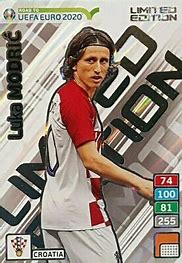 Group D: Scotland (1) 1 – 3 (1) Croatia
Group D: Scotland (1) 1 – 3 (1) Croatia Group F: Hungary (1) 1 – 1 (0) France
Group F: Hungary (1) 1 – 1 (0) France Group F: Portugal (0) 2 – 4 (0) Germany
Group F: Portugal (0) 2 – 4 (0) Germany Group E: Spain (1) 1 – 1 (0) Poland
Group E: Spain (1) 1 – 1 (0) Poland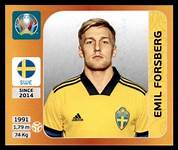 Group E: Sweden (0) 1 – 0 (0) Slovakia
Group E: Sweden (0) 1 – 0 (0) Slovakia Group D: Croatia (0) 1 – 1 (1) Czech Republic
Group D: Croatia (0) 1 – 1 (1) Czech Republic Group D: England (0) 0 – 0 (0) Scotland
Group D: England (0) 0 – 0 (0) Scotland Group E: Hungary (0) 0 – 3 (0) Portugal
Group E: Hungary (0) 0 – 3 (0) Portugal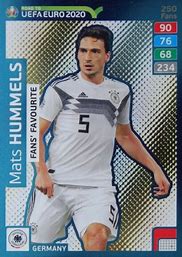 Group E: France (0) 1 – 0 (0) Germany
Group E: France (0) 1 – 0 (0) Germany Group D: Scotland (0) 0 – 2 (1) Czech Republic
Group D: Scotland (0) 0 – 2 (1) Czech Republic Group E: Poland (0) 1 – 2 (1) Slovakia
Group E: Poland (0) 1 – 2 (1) Slovakia Group E: Spain (0) 0 – 0 (0) Sweden
Group E: Spain (0) 0 – 0 (0) Sweden
 This book was originally released in Germany in 2018 with the title, Weltmeister ohne talent: Mein leben, meine karriere (World champion without talent: My life, my career) and was released in the UK a year later by deCoubertin Books after translation by Ceylan Hussein. The UK version has a different cover and in fact a different title, Per Mertesacker – BFG, Big Friendly German, My Autobiography. Of course, this is a play on the title of Roald Dahl’s children’s favourite, The BFG (Big Friendly Giant) and a nod to the Arsenal faithful who nicknamed Mertesacker, Big F***ing German, during his playing career at the Emirates.
This book was originally released in Germany in 2018 with the title, Weltmeister ohne talent: Mein leben, meine karriere (World champion without talent: My life, my career) and was released in the UK a year later by deCoubertin Books after translation by Ceylan Hussein. The UK version has a different cover and in fact a different title, Per Mertesacker – BFG, Big Friendly German, My Autobiography. Of course, this is a play on the title of Roald Dahl’s children’s favourite, The BFG (Big Friendly Giant) and a nod to the Arsenal faithful who nicknamed Mertesacker, Big F***ing German, during his playing career at the Emirates. There follows the four biggest chapters of the book which are organised into, Pattensen, which looks at his childhood, his parents and his pride of his hometown and his roots, Bundesliga, covering his playing career at Hannover 96 and Werder Bremen, Premier League, as Mertesacker moved to Arsenal in 2011 and Welmeister, focusing on his time with the German national team, culminating in winning a World Cup winners medal in 2014. The fifth chapter, The Beginning, neatly brings the reader up to date with Mertesacker in post at the Arsenal Academy and a reflective piece on his time as a young player, compared to that of the Academy players of today.
There follows the four biggest chapters of the book which are organised into, Pattensen, which looks at his childhood, his parents and his pride of his hometown and his roots, Bundesliga, covering his playing career at Hannover 96 and Werder Bremen, Premier League, as Mertesacker moved to Arsenal in 2011 and Welmeister, focusing on his time with the German national team, culminating in winning a World Cup winners medal in 2014. The fifth chapter, The Beginning, neatly brings the reader up to date with Mertesacker in post at the Arsenal Academy and a reflective piece on his time as a young player, compared to that of the Academy players of today.